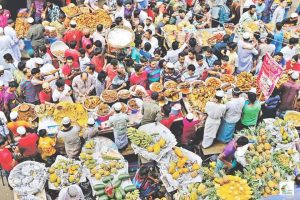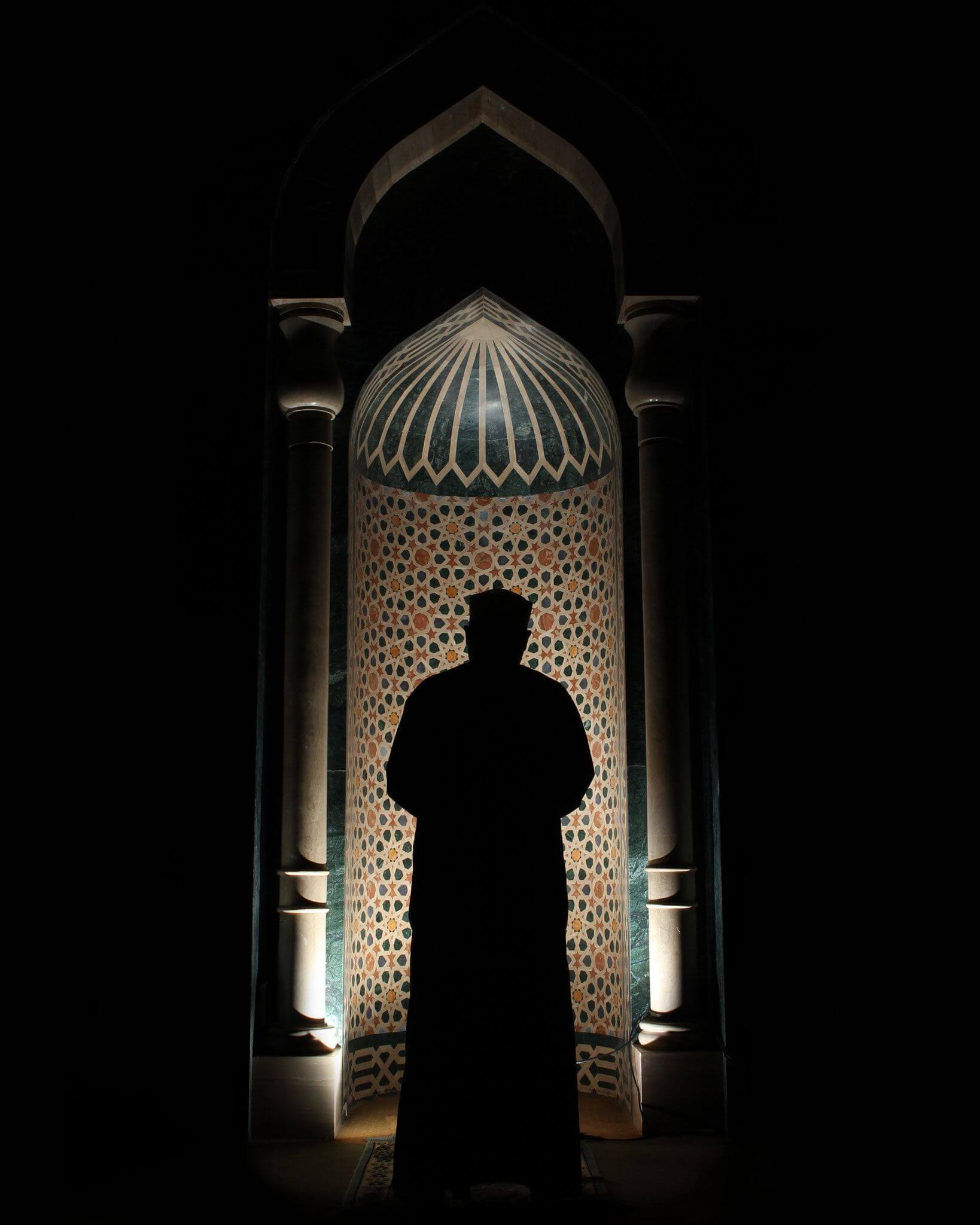Tabassum opines that Ramadan celebrations and Iftar bazar should be low-key, avoiding the rush, according to pandemic advisories. She reminds how Prophet Muhammad (PBUH) practised austerity. An exclusive for Different Truths.
 ‘If you hear of a plague in a land, then do not go into it. If it happens in a land where you are, then do not go out of it,’ ~ Prophet Muhammad (PBUH)
‘If you hear of a plague in a land, then do not go into it. If it happens in a land where you are, then do not go out of it,’ ~ Prophet Muhammad (PBUH)
The Ramadan has started from April 25, 2020, this year. These are unsettling and dangerous times. Generally, in the subcontinent, we see a very common pattern of behaviour in the Muslim community. Firstly, the tendency to buy Iftar with various items. The Prophet (PBUH) used to break his fasting with bread and dates. It is not understandable why his followers jump upon various items of Iftar. In breaking fast they just forget to follow his example. Due to the Muslim community’s demand, there are Iftar bazars along the roadsides. Secondly, Muslim community life swells with special prayers called Taraweeh namaz, five daily prayers are obligatory and Taraweeh is sunnah (recommended).
The Prophet (PBUH) used to break his fasting with bread and dates. It is not understandable why his followers jump upon various items of Iftar. In breaking fast they just forget to follow his example.
In the last year of the Prophet’s life, he came out one night and prayed Taraweeh. On that night, some people prayed with him. during the second night, word spread and more people joined in Taraweeh. Even more, people attended on the third. On the fourth night, the masjid was packed and the people awaited the Prophet’s arrival. The Prophet, however, prayed at home by himself. after Fajar prayer, he said: “Nothing prevented me from coming out to you except the fact that I feared that it would be made obligatory for you.” (Muslim)
From the time of Abu Bakr to the beginning of Umar’s time, people prayed either individually or in small groups. Later, ‘Umar gathered everyone behind one Imam and they prayed 8 Rak`at.
Thirdly, the madness for shopping for Eid-ul-Fitar. He (PBUH) and his companions would offer Zakat Al-Fitr before going to the mosque to offer Eid prayers. Then He (PBUH) would wear the special Yemeni cloak that he would wear on the two Eid’s and every Friday. So, it appears that he wore his special Yemeni cloak during Eid-ul-Fitar and it was the same Yemeni cloak, which he used to wear on every Friday.
He (PBUH) and his companions would offer Zakat Al-Fitr before going to the mosque to offer Eid prayers. Then He (PBUH) would wear the special Yemeni cloak that he would wear on the two Eid’s and every Friday. So, it appears that he wore his special Yemeni cloak during Eid–ul–Fitar and it was the same Yemeni cloak, which he used to wear on every Friday.
Time has changed. People want to celebrate. The change will take place in the

course of time. It is basic Freedom, rights, which give them the right to celebrate the way they want to. But now this is the time to use the basic common sense. The incident in Tablighi Jamaat is an example. There is another example in Bramanbaria, Bangladesh. Defying government orders to maintain social distancing and self-isolation, thousands of people from different areas on April 18, 2020, flocked to Brahman aria’s Sarail to attend the namaz-e-janaza of an Islamic party leader, ignoring the shutdown over Coronavirus pandemic. At least the Muslim community could follow Prophet Muhammad (PBUH)’s example of taking humble Iftar, his original practice of Taraweeh namaz and his practice of humble clothing during Eid -ul-Fitar.
Bangladesh government has banned Iftar bazar, there are restricted attendance of fifteen people in Taraweeh namaz. It is easy to monitor the attendances in big cities but impossible to restrict in the rural mosques. We don’t know for how long this virus is going to stay here. If the government eases lockdown, it would not be wise to rush towards the shopping mall. Common sense must prevail. At the time of writing this write-up, online sales are going on and courier services are working to deliver the products. But the inability to pray and eat together may be most keenly felt.
Bangladesh government has banned Iftar bazar, there are restricted attendance of fifteen people in Taraweeh namaz. It is easy to monitor the attendances in big cities but impossible to restrict in the rural mosques. We don’t know for how long this virus is going to stay here. If government eases lockdown, it would not be wise to rush towards the shopping mall.
As far as restrictions during Ramadan are concerned Muslim community must understand no one is trying to take away religious freedom. The great example is the Holy city of Mecca and Medina, where restrictions have been followed without flaws. They must realise the teaching and the examples of the
Prophet and follow him accordingly. With due respect to the Muslim community, I would like to remind the saying of Prophet Muhammad (peace and blessings be upon him), “Religion is easy; whoever overburdens himself in religion will be overpowered by it (i.e. he will not be able to continue in that way.) So, pursue what is good moderately; try to be near to perfection (if you cannot attain it); and receive the good tidings (that you will be rewarded)”. (Al-Bukhari)
Until next week, Stay safe, healthy and sound.
Photo sourced by the author





 By
By
 By
By
